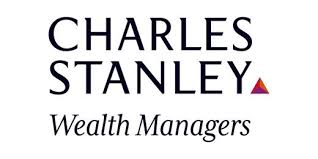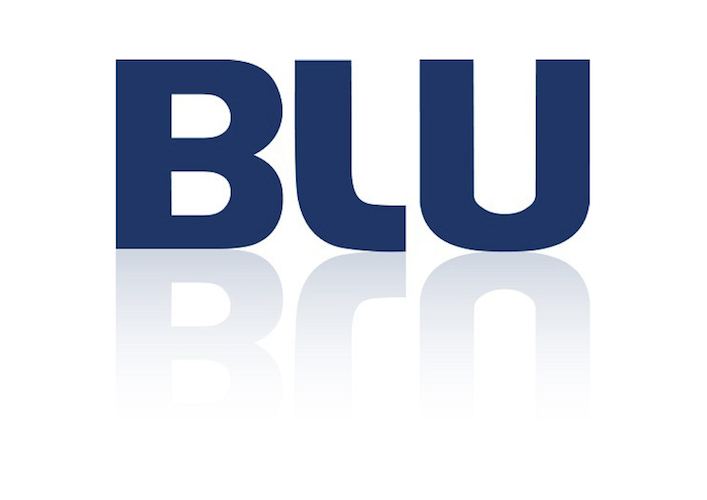This month:
Alongside Brexit, minds are focused on trade tensions between China and the US, and how other nations might be drawn in. But alongside diversifying against risks, there are “green shoots” of global growth for equity investors to heed as spring gets underway.
Expert investment views:
Fears surface that Trump could turn his guns on the European auto sector
Investors urged to see Brexit strife in the context of global diversification
Money managers position for an end to the ten-year bull market
Why gold may not be the “safe haven” investors seek in troubled times
How “green shoots” are increasing the attractiveness of global equities
“Any number” of individual companies present great prospects
Investors urged not to forget currency risk as amber warning light flashes
1. Tough talk on trade wars
Insights from:

Donald Trump’s trade war with China is likely to find some sort of resolution fairly soon. This should have Berlin worried. US consumers are being hit hard, particularly in Republican states, which could harm his re-election chances.
Donald Trump has also linked stock market gains to his own performance and the current incumbent of the White House. He appears to be getting increasingly worried that, if an agreement isn’t reached soon, equity markets will tank. Last year, the US domestic price of non-tariffed items was basically flat, but price in the US on tariffed goods rose between 10% and 30%. US exporters were also hurt by retaliatory tariffs, which were placed on about $121bn (£92bn) of US exports. By the end of 2018, it was calculated that the cost of lost exports from the US was running at $2.4bn a month.
If a deal is signed between President Trump and President Xi, Trump’s trade focus could turn on the European auto sector at a time when the German economy is in a period of flux
The US goods trade deficit also surged to a record high last year. This was helped along by one of the Trump administration’s other policies, with his tax cuts helping to boost domestic demand, sucking in imports, particularly vehicles. This means Germany should now be worried. If a deal is signed between President Trump and President Xi, Trump’s trade focus could turn on the European auto sector at a time when the German economy is in a period of flux. Donald Trump appears to want to use the threat of vehicle tariffs as leverage to force the EU to open up its agricultural markets. But this is also likely to provoke retaliatory actions by the EU, with unpleasant consequences for the global economy. Let’s hope President Trump has now learned that trade wars are bad and hard to win.

Garry White
Chief Investment Commentator at Charles Stanley
2. Brexit investment strategy
Insights from:

By the time that we are writing this post things could have already moved on, so quickly are the events now unfolding as the UK prepares to depart the EU after more than 40 years of integration. This week, we will learn whether the deal negotiated by Theresa May will be approved by Parliament. What happens from there nobody knows.
Partly, that is because the “deal” at hand is no more than an agreement to figure things out later and the consequences of leaving or staying and under what conditions could take years, decades and maybe even generations to truly manifest themselves.
So how does an investor position themselves ahead of such a binary event? Don’t speculate with your portfolio or, in other words, don’t let Brexit interfere with your investment strategy in the least bit. That may seem surprising, but the point is, if your portfolio is structured in such a way that an event could have a large impact on performance, it is not diversified well enough from the outset.
The UK only makes up 2.25% of global GDP and is inhabited by less than 1% of the planet’s population and as such would hardly feature heavily in a global portfolio
If you want to speculate on Brexit, I would buy some sterling call or put options. The risk will be very clearly defined in that you can only lose so much if you get it wrong, and gain this much if you get it right. Your allocation to stocks, bonds, hedge funds, or private equity should have nothing to do with what happens in the UK anyway.The UK only makes up 2.25% of global GDP and is inhabited by less than 1% of the planet’s population and as such would hardly feature heavily in a global portfolio.
Keep it clear, keep it concise and don’t try to be too clever. The risk of getting a political decision right or wrong should have no influence on your overall level of wealth.

Christian Armbruester
Chief Investment Officer at Blu Family Office
3. “Every time we say goodbye”
Insights from:

The last few months of 2018 were unequivocally grim for investors, as concerns rose over a combination of expensive valuations, deteriorating macroeconomic conditions and a belief that the supportive hands of central bankers were finally being removed from under financial markets. However, the start of 2019 has been an almost mirror image of late 2018, as despair turns to hope and investors appear willing to take higher levels of risk again. It is a sign that every time one thinks we are saying goodbye to the equity bull market that started in 2009, it tries hard to carry on. So, what happens next? Is it time to say goodbye to the equity bull market of the last decade?
The question for markets has to be whether corporate earnings will grow in 2019 and whether valuations are cheap enough to compensate investors for the risks they are taking? On the former factor we are not sure we will see much growth in earnings this year; and on the latter, it is not obvious that valuations of equities are cheap. Therefore, it is entirely possible that the immediate future for equity markets is uncertain and will be volatile, with a fair chance that we saw the start of a global equity bear market in early 2018 and there is the potential for further falls ahead. That being said, the central bankers and governments, most notably in China, are now doing all they can to arrest the economic slowdown and put a floor under equity markets.
we are prepared to take a more defensive tack, should the stimulus measures prove to be insufficient to boost growth and corporate earnings in the coming quarters – and it really is time to say goodbye to the ten-year bull market in equities
Given the amount of stimulus being injected at this time, it would make sense for us to be broadly neutrally positioned and taking a tactical approach, as evidenced by our decision to increase risk in Q4 2018 and reduce it in the last few weeks. In addition, we are being very “open minded” as to what might happen next and, certainly, we are prepared to take a more defensive tack, should the stimulus measures prove to be insufficient to boost growth and corporate earnings in the coming quarters – and it really is time to say goodbye to the ten-year bull market in equities.

Thomas Becket
Chief Investment Officer at Psigma Investment Management

Top Tip
As this month’s experts emphasise, there is no substitute for proper diversification when it comes to insulating your portfolio from the kind of geopolitical shocks we’re seeing more and more of today. Asking a professional about the true diversification quality of your portfolio could head off some very expensive errors.

Lee Goggin
Co-Founder
4. Should you invest in gold?
Insights from:

Gold has long been seen as a safe asset class in difficult times. People buy gold in their investment portfolios because they hope it will act as a store of value, a diversifier and an inflation hedge. Amid fears of a calamitous no-deal Brexit and threats of a trade war between the US and China, some might feel this is a good investment. We are unconvinced. And as such, it barely registers a flicker in our current portfolios.
We believe that an investment should be something that produces an income in the long term. This income compounds and it is that compounding that makes all the difference!
If you invest £10,000 today and consistently generate 5% p.a. above inflation, it will nearly double in value over 15 years. Meanwhile, were you to spend £10,000 on gold instead it would probably still be worth £10,000 – if you are lucky
If you invest £10,000 today and consistently generate 5% p.a. above inflation, it will nearly double in value over 15 years. Meanwhile, were you to spend £10,000 on gold instead it would probably still be worth £10,000 – if you are lucky. There are no guarantees with any investments. And you can easily lose money on gold too.
Some argue that the price of gold is sensitive to the value of the US dollar – when the dollar is strong, gold tends to be weak and vice versa. If this holds then should the dollar weaken, gold could get stronger. But, to us, this feels like speculation, not investment. And actually, not only does gold not produce an income, you have to pay to store it. We prefer assets such as equities that generate an income and have the potential to grow over time.

Haig Bathgate
Head of Portfolio Implementation at Seven Investment Management
5. Global markets: green shoots
Insights from:

Domestically, it is fair to say it has been a tumultuous few weeks for Westminster, as we approach the UK’s scheduled departure date from the EU.
However, as we take stock of the broader picture, it is important to recognise that global markets have recently enjoyed a period of relative calm. Many economies globally are showing signs of stabilising and, in fact, 2019 has seen the best start to the year for global equities since 1991.
The question now is whether valuation multiples can still expand given that some good news has already been priced in, yet a number of key risks to the market remain.
While UK investors will likely be preoccupied with persisting uncertainty around Brexit, the risk weighing on minds further afield is seemingly the ongoing Sino-US trade negotiations and the state of both economies. We acknowledge that disruption caused by persisting tensions between the two nations, combined with damage to confidence from tariffs, has resulted in a slowdown in global growth.
With valuations attractive and our expectation for slowing-but-solid economic growth, we think an overweight position on equities is warranted
Nonetheless, encouraging signs of greater flexibility from US and Chinese politicians indicate the damage to markets can be contained. While a substantive and long-lasting deal remains unlikely for now, we expect macroeconomic fundamentals to recover as the prospect of further tariffs is kicked down the road. We forecast global growth rates to hold at around 3.5% throughout the year.
On balance, the risk-return outlook remains favourable and the global backdrop for stocks supportive. With valuations attractive and our expectation for slowing-but-solid economic growth, we think an overweight position on equities is warranted. However, to manage ongoing market volatility, investors should add protection when and wherever necessary, and also build some non-correlated assets, such as real estate and private equity, into their portfolios.

Geoffrey Yu
Head of UK Investment Office at UBS Wealth Management
6. “Any number” of interesting individual companies
Insights from:

There seems to be a sense of ennui amongst UK investors at the moment, with people just wanting to move past 29 March (the Brexit deadline) and get back to normal.
The good news is that a no deal scenario, the most disruptive for the UK economy, appears to be gradually diminishing. In light of this, many investment managers will be reconsidering their exposure to the UK and whether there are opportunities close to home. You can either implement this immediately through a passive vehicle, or an interesting active opportunity here is the Liontrust Special Situations Fund. This has meaningful exposure to UK mid-cap companies, but also high exposure to overseas sales too. It could therefore be considered in both hard and soft Brexit scenarios.
For global investors, 2019 has been a year to remember so far. Investors in US equities have had their best start to the year since 1991, an almost perfectly v-shaped recovery. The US and China look closer to reaching a deal on trade, and the Federal Reserve appears to have decided to leave interest rates on hold for the time being.
While the moderation in global economic activity continues, nothing suggests any major cause for alarm. There may be a lack of near-term catalysts for markets as a whole, but there are any number of individual companies we see good prospects for
While the moderation in global economic activity continues, nothing suggests any major cause for alarm. There may be a lack of near-term catalysts for markets as a whole, but there are any number of individual companies we see good prospects for. Those which can reinvest profits in their business at high rates of return are one area we find interesting, and have been looking closely at several interesting opportunities recently.
While market performance is unlikely to remain so perfect for the rest of the year, we believe there are still opportunities in 2019. Volatility might return as soon as the end of the month for UK asset classes, though we believe an extension to Article 50 is the most likely outcome for now. What we can say for certain, is that there will be plenty to keep us busy for the rest of the year.

Adam Hughes
Investment Manager at Quilter Cheviot Investment Management
7. Keeping an eye on currencies
Insights from:

All investors should be aware of their currency exposure and sensitive to the potential for large shifts in international currency markets.
Key drivers of returns across all our portfolios in the past couple of years have been our exposure to US equities and our focus on large UK companies with strong international earnings. As a result, portfolios have benefited from sterling’s depreciation following the Brexit result, but we believe at some point the story is likely to unwind.
It could be as soon as 29 March in the event of Britain finding a positive outcome to Brexit. An end to uncertainty might make Britain look attractive once more to foreign investors.
It could be later in the year if the global business cycle begins to turn negative – at which point the dollar, which is a counter-cyclical currency, could start to weaken.
We are not making a call on currency now, but the amber warning light is flashing. Seeking to protect our portfolios from sterling strength or weakness will be a priority
We do not want to find portfolios in a pincer trap, caught between sterling rising and the dollar falling.
We remain, for now, underweight UK but we can change that quickly. We could switch US treasury fixed interest holdings to sterling long-duration gilts (based on the assumption that interest rates are not going to move very far soon, with the view that we could reasonably safely enjoy the extra returns attached to the longer duration). We could move overseas fund investments into hedged classes. We could switch our small holdings of gold (which is priced in dollars) into sterling assets.
We are not making a call on currency now, but the amber warning light is flashing. Seeking to protect our portfolios from sterling strength or weakness will be a priority.

Billy Hughes
Portfolio Manager at James Hambro & Partners
Important information
The investment strategy explanations contained in this piece are for informational purposes only, represent the views of individual institutions, and are not intended in any way as financial or investment advice. Any comment on specific securities should not be interpreted as investment research or advice, solicitation or recommendations to buy or sell a particular security.
We always advise consultation with a professional before making any investment decisions.
Always remember that investing involves risk and the value of investments may fall as well as rise. Past performance should not be seen as a guarantee of future returns.







